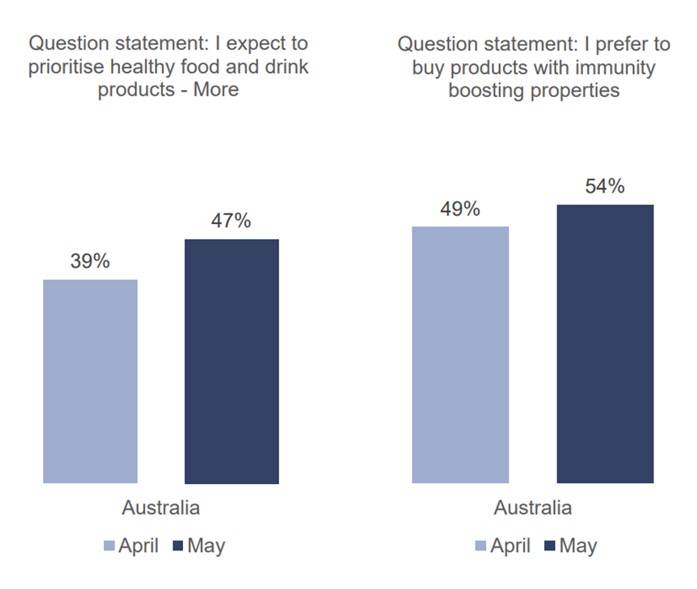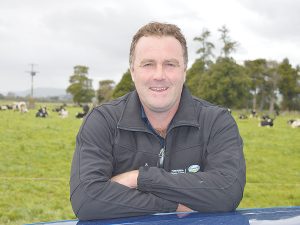
Ārepa had a 250% spike in sales in the month after lockdown and has continued to grow since then, making it the fastest selling health drink in supermarkets.
“We’ve been doubling revenue year-on-year since Covid began,” says Brown, Ārepa’s co-founder and chief executive. “Everyone just seems to want it more and more now. With the rates of people with cognitive related concerns coupled with Covid related immunity concerns, we got a double-pronged benefit.”
Brown’s drink, made from blackcurrants, pine-bark extract and L-theanine, an amino acid found in green tea, is benefiting from a global trend towards convenient, natural foods with health benefits that’s been accelerated by Covid.
Ārepa expanded to Australia last year, and is fielding enquiries from further afield, including Singapore, Hong Kong, the United Kingdom and the United States. It raised $2.5 million last year to fund its Australian expansion and is eyeing a bigger raising within the next year to fund a push into the US.
The company has bought in some heavy hitters to help, including former Zespri chief Lain Jager who has become an investor and joined the board, and Allbirds branding guru Simon Endres who is refreshing the brand for global expansion.
Other nutritional brands have also experienced a sales boost since Covid.
Nutrient Rescue, which produces fruit and vege powdered sachet “shots”, doubled its average daily new customers in the last quarter of 2021 from the equivalent pre-Covid period in 2019, and growth has continued this year.
Chief executive Andrew Simcock says the jump in new customers shows the impact of Covid as the pandemic put the spotlight on the importance of being healthy and having good immunity.
A survey prepared by NZ Trade and Enterprise, Te Taurapa Tūhono, for the company’s expansion into Australia showed that following the outbreak of Covid-19, an additional 8% of Australians planned to prioritise healthy food and drink in May 2020 compared with the month earlier, and there was also an increase in the number of people who preferred products with immunity boosting properties.
The trends were also seen in other markets, including Singapore, the UK and US, suggesting a global trend of consumers concerned with health, the report said.
“People are much more aware of how important their general health is,” Simcock says. “We are a young business that’s in growth mode, but we are definitely seeing a pickup.”
While the company’s products were initially sought out by people with specific health concerns, Simcock says demand is now coming from people in the mainstream who are seeking better nutrition from natural products, and moving away from supplements and energy drinks.
He says it can be hard to eat properly with enough diversity in your diet for good nutrition, and Nutrient Rescue makes it easier by providing a daily dose of eight types of fruit and veges.

“We have a number of these wonderful, nutrient dense superfoods that we can produce and take overseas, as well as feeding our own requirements,” Simcock says.
Lincoln University agribusiness and food marketing programme director Dr Nic Lees says companies are responding to a desire among consumers for products that are perceived to be more healthy, a trend that has accelerated since Covid.
“In the current environment, things are changing very rapidly,” he says. “These things have been simmering along, but all of a sudden there is a real focus around food that is providing health benefits.”
Still, Lees says while people want their food to be healthy, they don’t want to go through a lot of effort. And they’re increasingly aware that taking supplements in a capsule form isn’t necessarily giving the same benefit as nutrients contained within food.

Lees is following the trend in his own life, taking a veggie snack box to work every day to ensure he gets his daily dose of fruit and veges to be healthy.
He notes Asian cultures are more attuned to the impact of food on health but says it’s a rising trend among European New Zealanders, given extra momentum from Covid.
Mainstream companies are also jumping on the trend, with niche peanut butter brand Nut Brothers recently adding a new probiotic and cranberry range.
“You need to always be innovating and coming forward with new things,” says co-founder Jono Wood. “If you look at what’s happening around the world, you see companies in America have done it, and we thought that’s clever, we’ll give it a go.”
He says it’s a neat way for families to add healthy food into their kids’ diets.

“Probiotics is a good thing and it’s an easy way to get it into your family,” he says. “You are what you eat, so everyone needs to supplement all the good stuff somehow.”
Lincoln University’s Lees says people are increasingly wanting their food products to be healthy, and to feel that they are giving some benefit to them.
“The thing that is always quite interesting is how much of it is an actual benefit versus a perceived benefit,” he says.
While there is good evidence for the use of mānuka honey for wound care, there is zero evidence that consuming mānuka honey has any health benefits whatsoever, he says.

Very few consumers are actually going to look at the evidence for a product and they don’t always behave rationally, he says.
Most products do have some degree of scientific backing linking it to health benefits, and that is enough for most consumers, he says.
“As long as you’ve got enough indication that that’s the case, people then perceive it as being healthier and better for you and a whole bunch of things that probably there’s not much evidence whether it is or not,” he says.
Still, some companies are spending up big on science to back their nutritional claims.

New Zealand’s largest food company, dairy giant Fonterra, is increasing its innovation spending by 50% to about $160m a year by 2030 as it delves deeper into the properties of milk, so it can produce high value nutritional products.
Fonterra discovered and commercialised two of the world’s top probiotic strains, which address digestive issues and immunity, and it holds more than 40,000 dairy culture strains at its Palmerston North research and development centre, one of the largest dairy culture libraries in the world. Most have yet to be tested for their potential as probiotics and may have health benefits never seen before.
In December last year, Fonterra partnered with world renowned scientist Dr Robert Langer co-founder of vaccine maker Moderna, and his US biotechnology company VitaKey which specialises in the precision delivery of nutrition.
Langer says people may not realise that a lot of nutrients get destroyed before they are eaten and his company has developed technology to stabilise nutrients and ensure they survive and are bioavailable for the consumer.
The first stage in the collaboration focused on stabilising Fonterra’s two probiotics for digestive issues and immunity to enable them to be delivered to parts of the body where they are needed most for optimal nutrition. The venture has since expanded to include other micronutrients such as Vitamin D.
Langer is hopeful VitaKey will be revolutionary for the US$8 trillion (NZ$12t) a year global food industry.
“Nutrition is so important,” he says. “I’m just trying to do what I can with science to hopefully make the world a happier, healthier place. Our goal is to see as many people benefit worldwide as possible.”

























